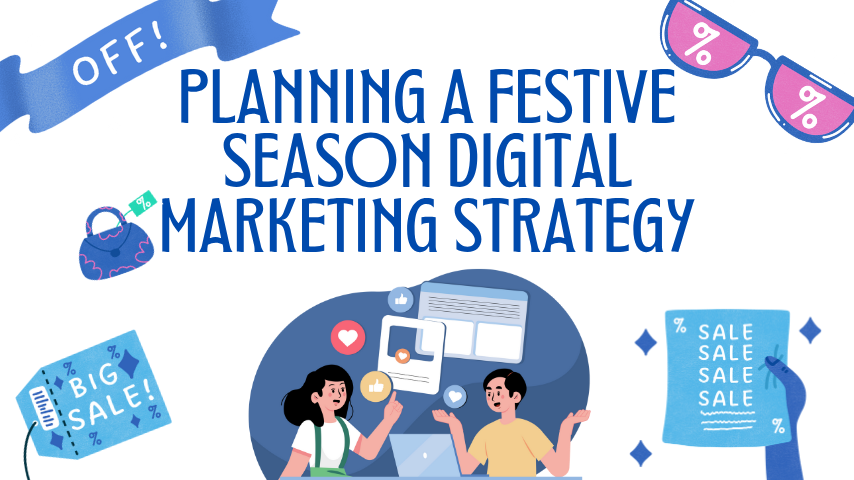
Introduction
In the ever-competitive freelance world, talent alone isn’t enough. Whether you’re a graphic designer, content writer, developer, or digital consultant, landing high-paying and consistent clients requires visibility and strategic marketing. That’s where digital marketing comes into play. With the right digital marketing strategies, freelancers can build their personal brand, attract quality leads, and grow a sustainable client base. Here’s how you can do it.
1. Build a Professional Website or Portfolio
Your website is your digital home. It should clearly communicate what services you offer, showcase your previous work, and make it easy for potential clients to contact you.
Key elements to include:
-
About section with a compelling bio
-
Portfolio or case studies
-
Testimonials from past clients
-
Contact form or booking links
-
SEO-optimized content (more on that below)
Even a simple one-page website can dramatically boost your professional image.
2. Leverage Social Media Platforms
Social media is one of the best tools to promote your services for free. Choose platforms that align with your niche. For example:
-
Designers can thrive on Instagram, Pinterest, or Behance
-
Writers or consultants can use LinkedIn and Twitter
-
Developers may find GitHub and LinkedIn more effective
Tips for success:
-
Share valuable tips, industry insights, or project highlights
-
Use relevant hashtags to increase reach
-
Engage in niche-specific communities and groups
-
Optimize your bio with keywords and links to your portfolio
3. Use Content Marketing to Establish Authority
Content marketing positions you as an expert in your field. You can start a blog, YouTube channel, or podcast to share helpful content related to your skills.
Ideas for content:
-
How-to tutorials
-
Case studies and project breakdowns
-
Behind-the-scenes of your freelance journey
-
Industry trends and analysis
This not only helps build credibility but also drives organic traffic to your website over time.
4. Search Engine Optimization (SEO)
If clients can’t find you, they can’t hire you. That’s where SEO comes in. Optimize your website and content so that it ranks higher in search engine results.
Basic SEO tips for freelancers:
-
Use relevant keywords (e.g., “freelance logo designer in Mumbai”)
-
Add alt-text to images in your portfolio
-
Optimize meta titles and descriptions
-
Keep content fresh and updated
Local SEO is also important if you want to attract clients in a specific region.
5. Email Marketing for Relationship Building
Email marketing isn’t just for big companies. It can be a powerful tool for freelancers to stay in touch with prospects, past clients, or newsletter subscribers.
How to get started:
-
Offer a free resource (e.g., checklist, template, mini-course) in exchange for email sign-ups
-
Send regular updates, blog posts, or industry insights
-
Share client success stories or new service offerings
You don’t need a huge list—just a few loyal subscribers can lead to referrals and long-term projects.
6. Online Ads for Quick Visibility
If you have a marketing budget, running paid ads on platforms like Google Ads, Instagram, or LinkedIn can give you instant exposure.
Why ads work:
-
Target specific demographics or industries
-
Get in front of decision-makers
-
Test new offers or services quickly
However, it’s essential to have a clear value proposition and landing page before investing in ads.
7. Utilize Freelance Marketplaces… Strategically
Platforms like Upwork, Fiverr, and Freelancer can be overcrowded, but if used wisely, they can help you gain credibility and early clients.
Tips:
-
Optimize your profile with clear, keyword-rich titles and descriptions
-
Gather reviews by delivering high-quality work
-
Promote your marketplace profiles via your other channels
Once you build a reputation, you can move clients off-platform and grow your independent brand.
8. Ask for Reviews and Referrals
Word-of-mouth is still incredibly powerful. Ask your satisfied clients to leave reviews on Google, LinkedIn, or your website. You can also create a referral program offering incentives for recommendations.
Conclusion
In the digital age, freelancers must be more than just skilled—they must also be visible. Digital marketing offers the tools and platforms needed to reach your ideal clients and showcase your expertise. Whether you’re just starting out or looking to scale your freelance business, implementing even a few of these strategies can help you land more clients and grow your reputation. Remember, consistency is key, and over time, your digital presence can become your strongest business asset.




